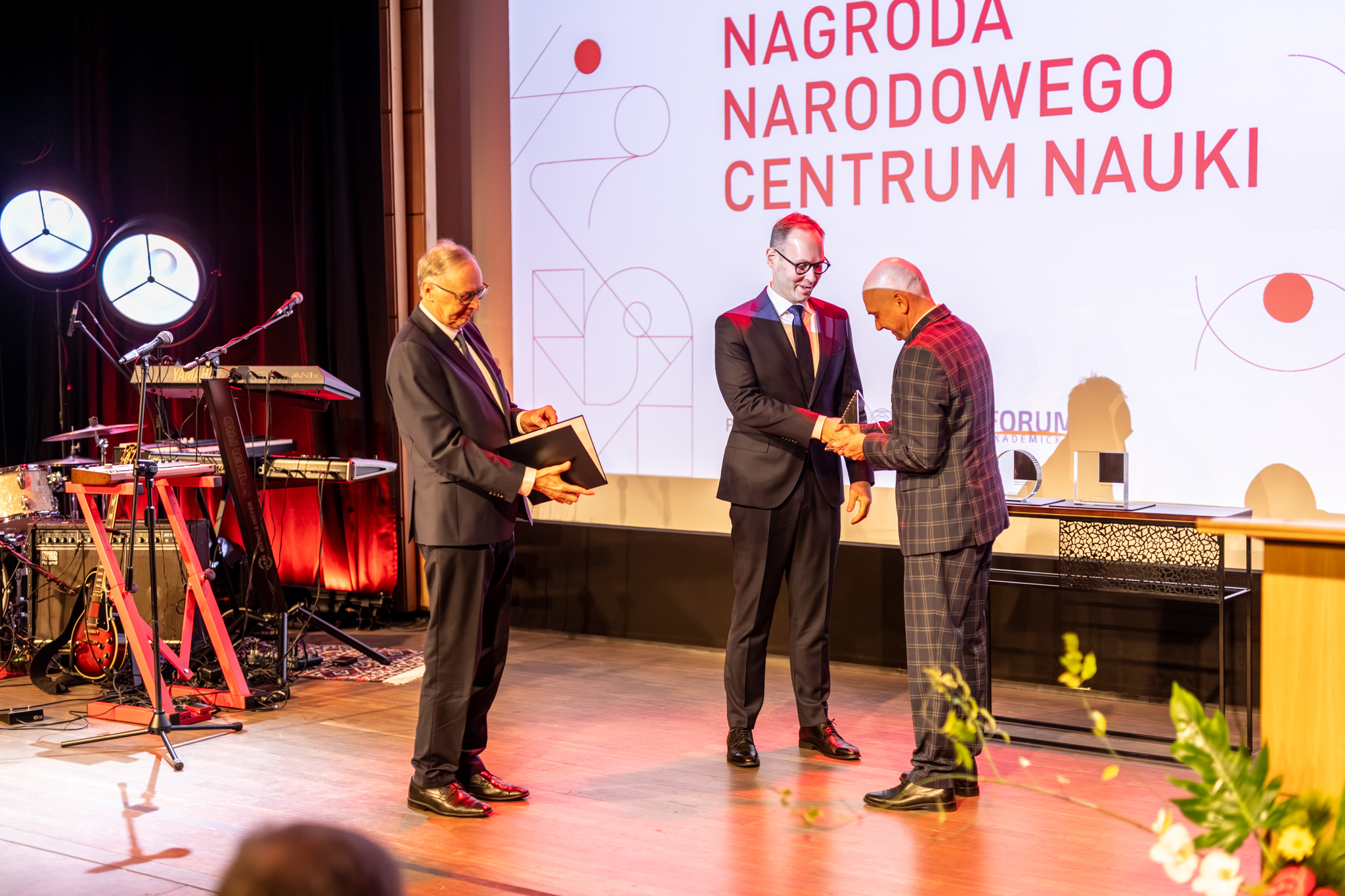
Professor Bartosz Szyszko honoured with the prestigious NCN Award
The Award of the National Science Centre is the most prestigious honour for young researchers in Poland. We met with its recipients on October 15th at 6:30 P.M. The event was web-streamed.
The NCN Award has been presented for outstanding accomplishments in basic research conducted in Polish research institutions since 2013. Its receivers used their work to broaden the horizons of knowledge and significantly contribute to international science. It is awarded in three research areas: Humanities, Social Sciences and Arts, Physical Sciences and Engineering, and Life Sciences. So far, 36 researchers have received this award.
This year, there were 125 candidates for the Award (185 submissions). The Jury chose three people from the nominees – one per scientific field. Their identities were revealed during a formal gala held at the Manggha Museum of Japanese Art and Technology in Krakow. The event transmission was available on the NCN website and on the official NCN YouTube channel.
The gala’s host was Karolina Nowacka from Radio Naukowe. Forum Akademickie and Nauka w Polsce PAP were the event’s media patrons. In the following weeks, the laureates presented their research in the Nauka w Centrum series, which was organised jointly by the NCN and by Fundacja Centrum Kopernika.
Professor Bartosz Szyszko was the NCN Award recipient from the University of Wrocław.
Dr hab. Bartosz Szyszko is a professor at the University of Wrocław. He specializes in supramolecular chemistry. − Chemists typically research molecules connected by covalent bonds or ionic bonds. I, on the other hand, wanted to analyse chemical topology – says the researcher. − At the heart of this field of study are systems that are created thanks to an inconspicuous way of linking their elements.
Professor Szyszko’s research team is interested in the synthesis and research of rotaxanes, catenanes, and molecular knots – mechanically-intertwined particles that look like links of a chain. These systems have completely different properties, dynamics, and reactivity when compared to the common chemical compounds. Achievements of this team include, among others, processing new methods of creating structures with nontrivial topology, including using metal ion nanoclusters as construction templates. Scientists have also discovered a new type of molecular movement in rotaxanes, called “fluttering”. Research devoted to elastic knots and molecular structures published in Angewandte Chemie was featured as a highlight in Nature Synthesis.
− For me, the NCN Award is a sign that even in a world in which scientists are expected to deliver instant results, quicker processes, lower production costs and higher profits, there is still a place for something new – for research done out of pure curiosity – emphasises professor Szyszko. − Understanding the behaviour of single mechanically-intertwined molecules, gaining more control over their dynamics and explaining why they react in certain ways brings us closer to using them in designing modern, intelligent materials and nanomachines, the possible use of which we are yet unable to fully imagine – he adds.
Rotaxanes already find use in controlled release of active substances in organism and in receiving gel materials capable of changing volume while affected by external stimuli. These gel materials are used in soft robotics. Scientific research may be fundamental in creating new types of functional materials and devices on a nanoscale, including chemical detectors, drug carriers, nanomachine elements, and intelligent catalysts.
Professor Szyszko is a part of the “NCN generation” − that is, a group of researchers who had their scientific careers developed in a close relationship with the NCN’s programmes. He was a laureate of the first edition of PRELUDIUM – a contest for pre-doctorate scientists. To this day, he has managed five NCN projects.
He is a laureate of various awards, such as the Włodzimierz Kołos PAN Award, Iuvenes Wratislaviae distinction, the MNiSW Scholarship for Young Scientists, and the START FNP programme. He publishes in leading chemical journals, including Angewandte Chemie, Journal of the American Chemical Society, and Nature Communications. He is a member of the Polish Young Academy.
Source: National Science Centre
Translated by Michał Zajączkowski (student of English Studies at the University of Wrocław) as part of the translation practice.
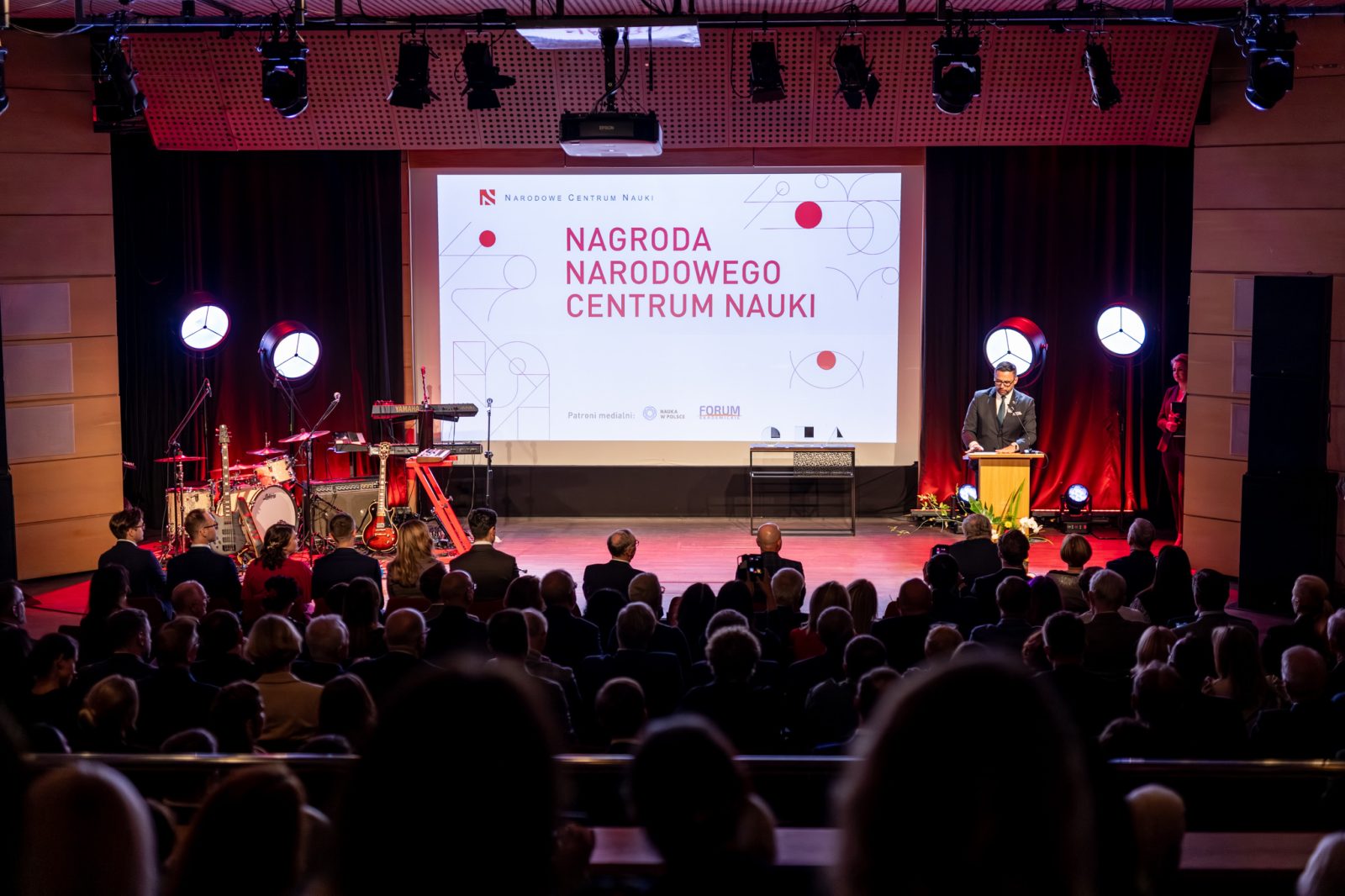
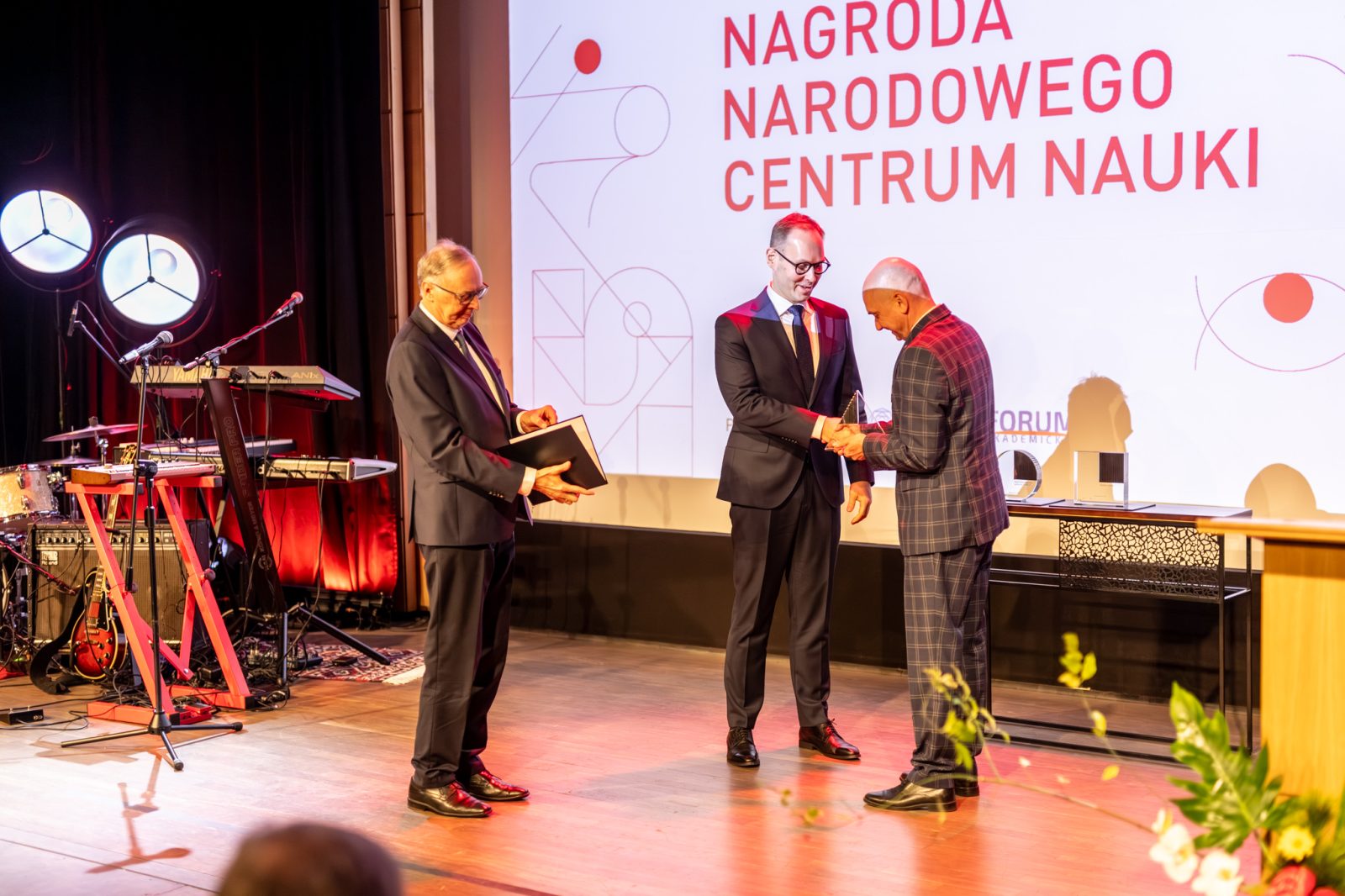
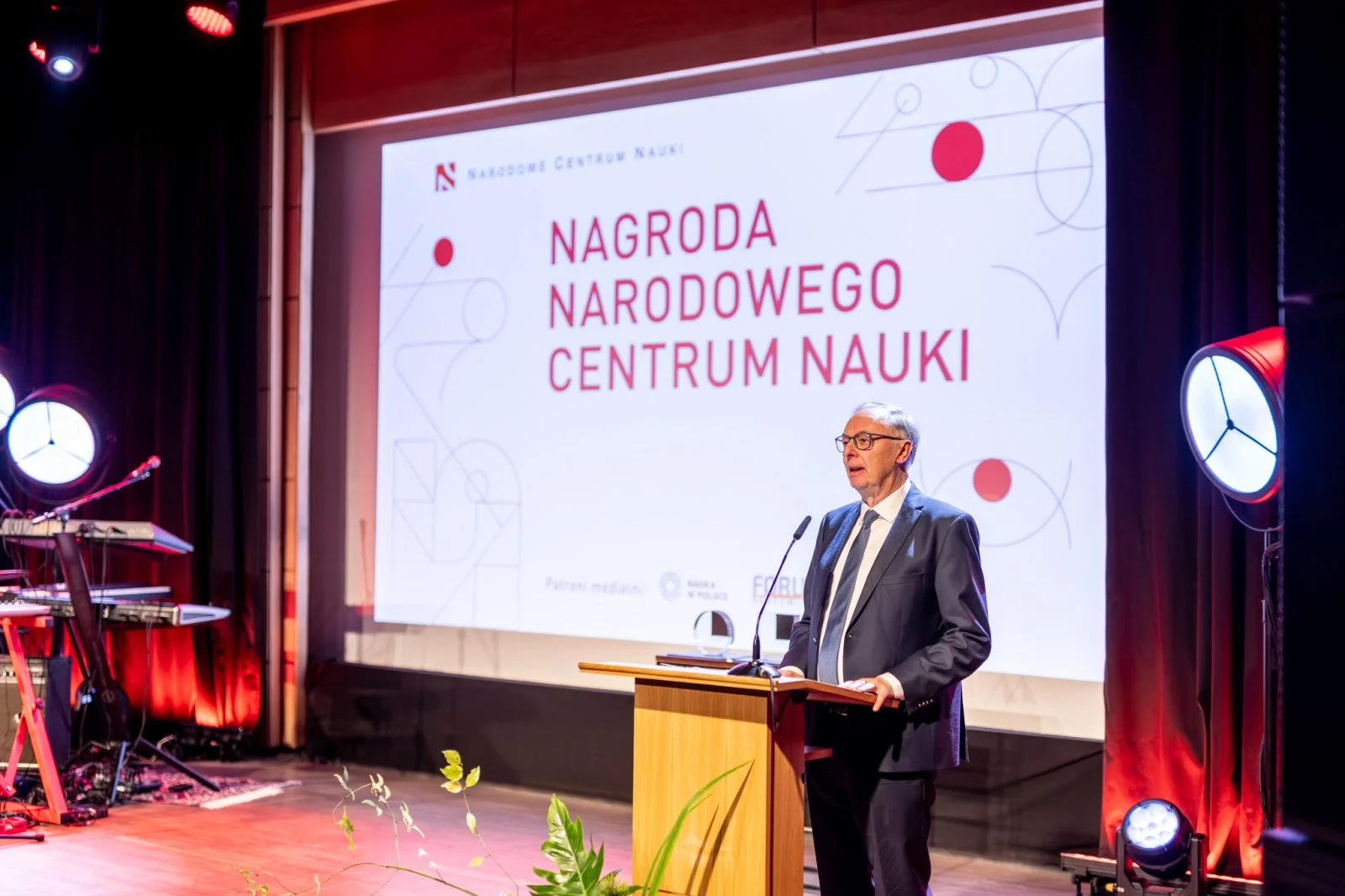
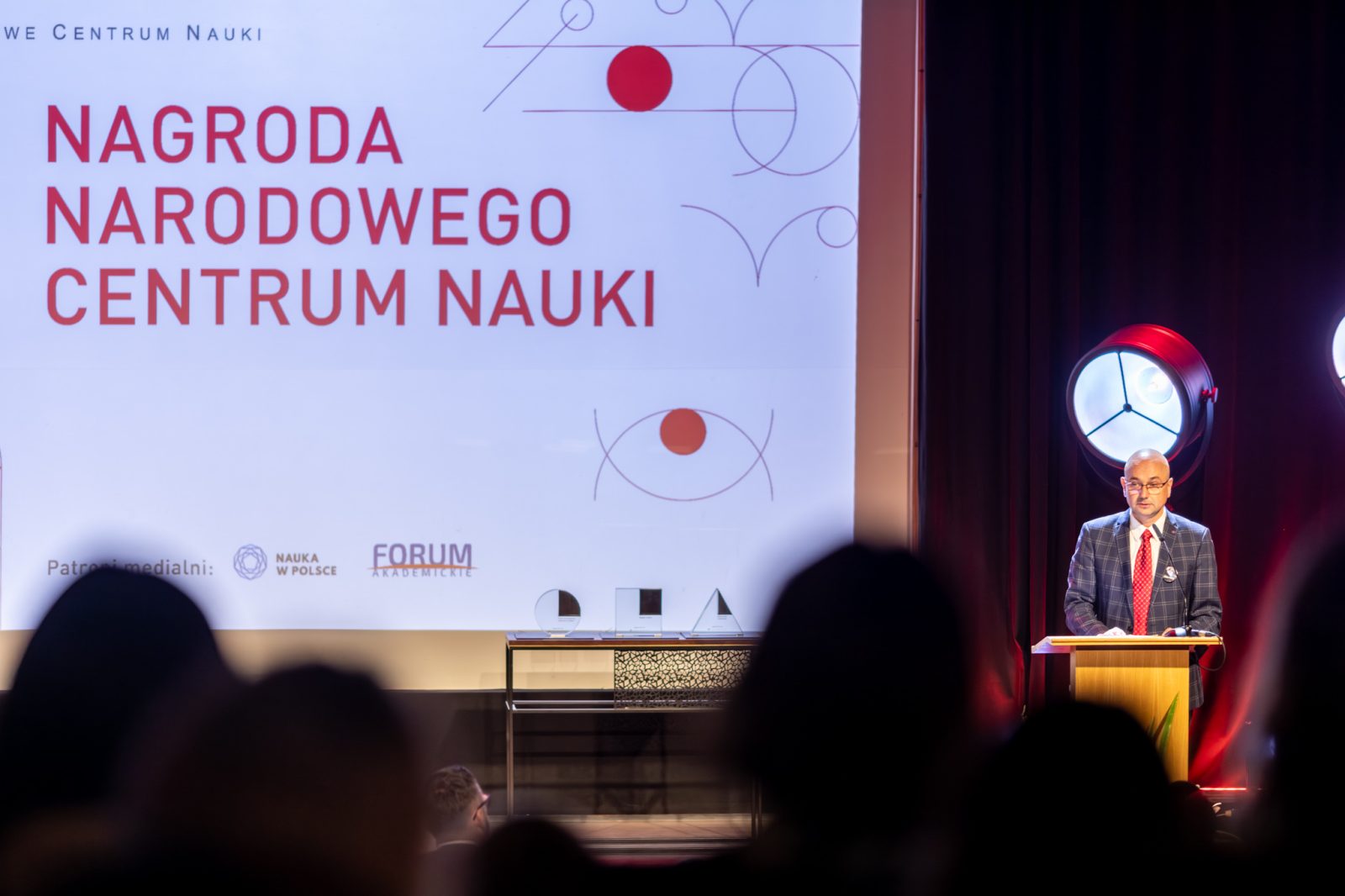
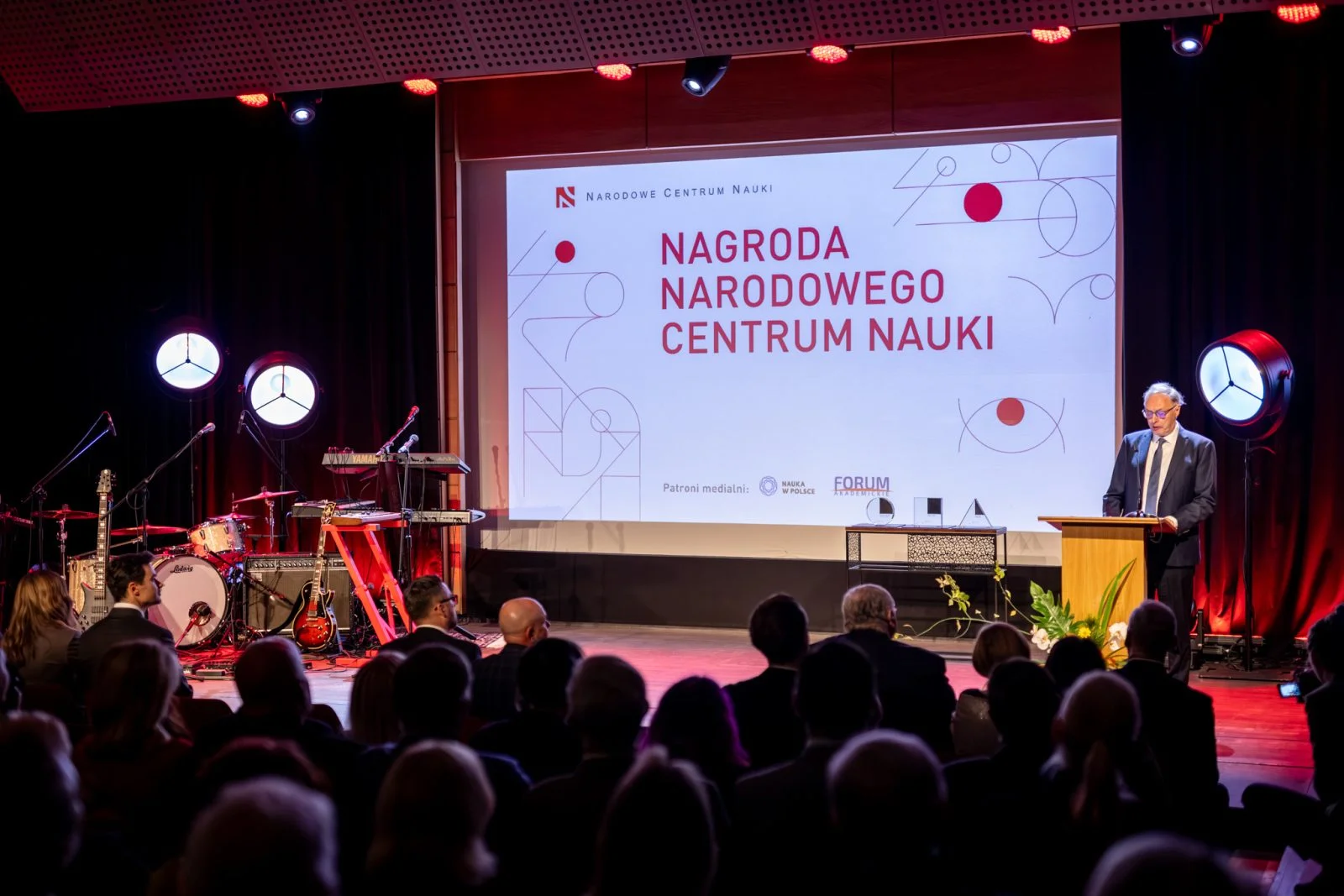
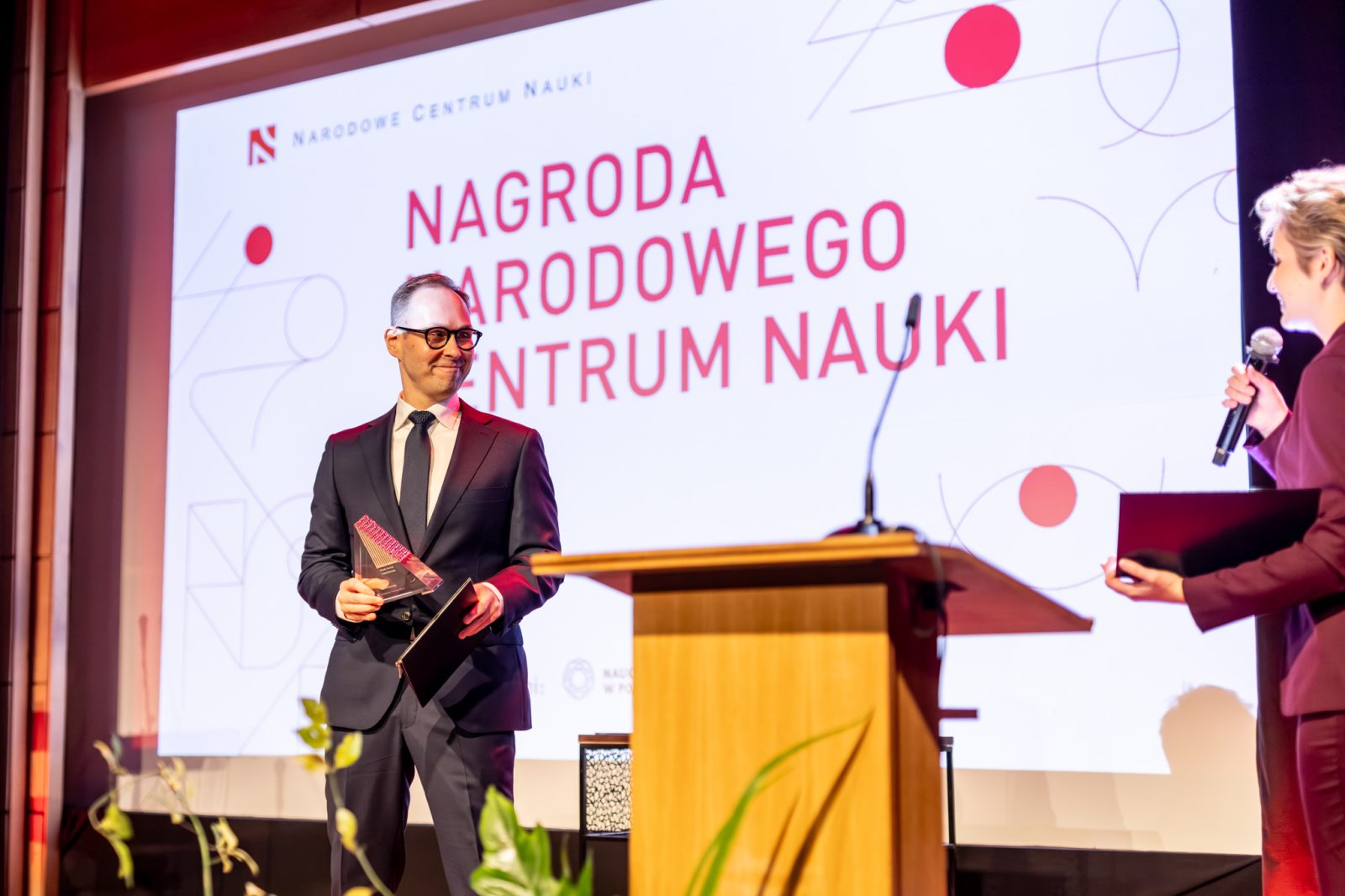

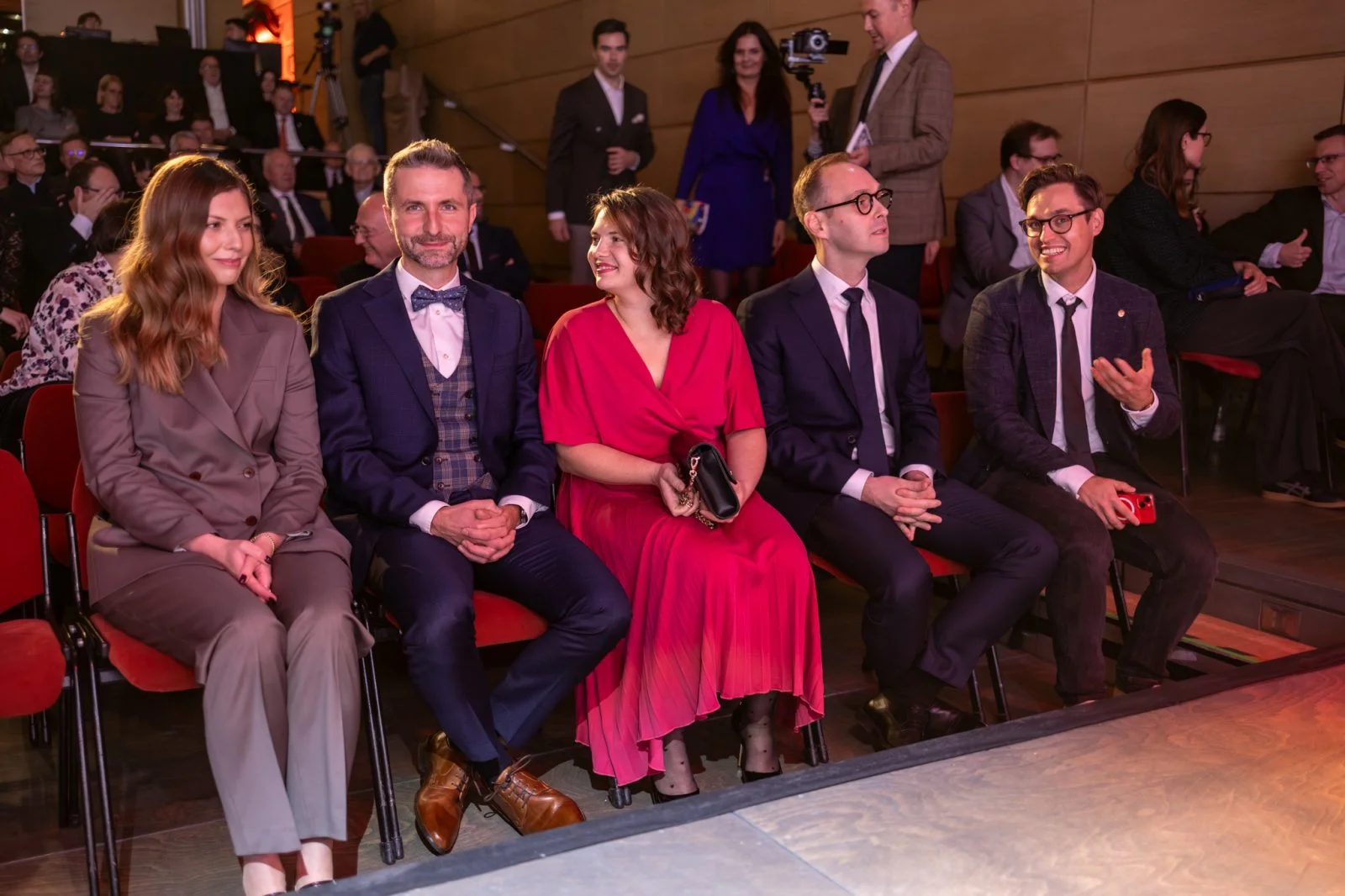
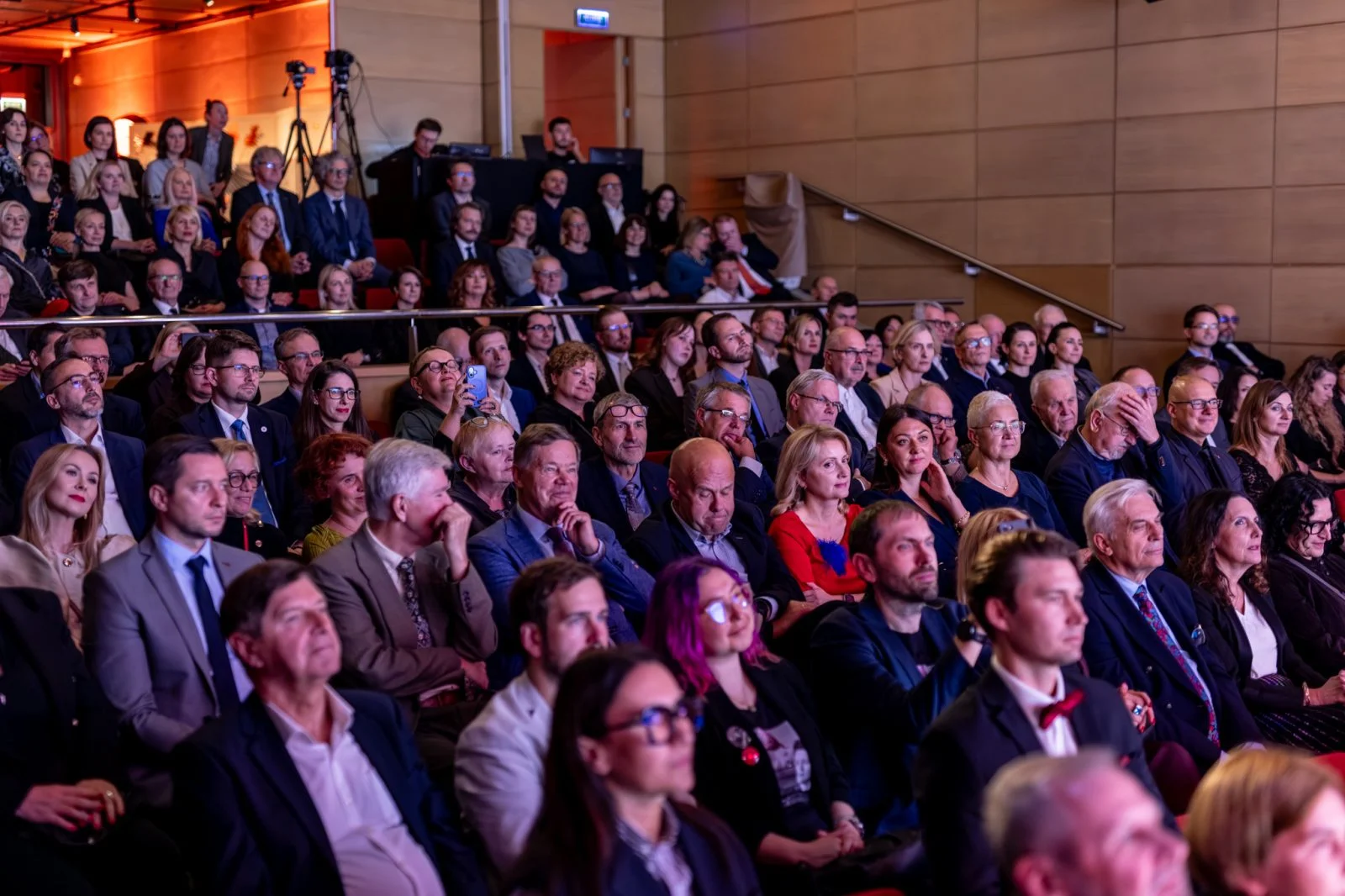
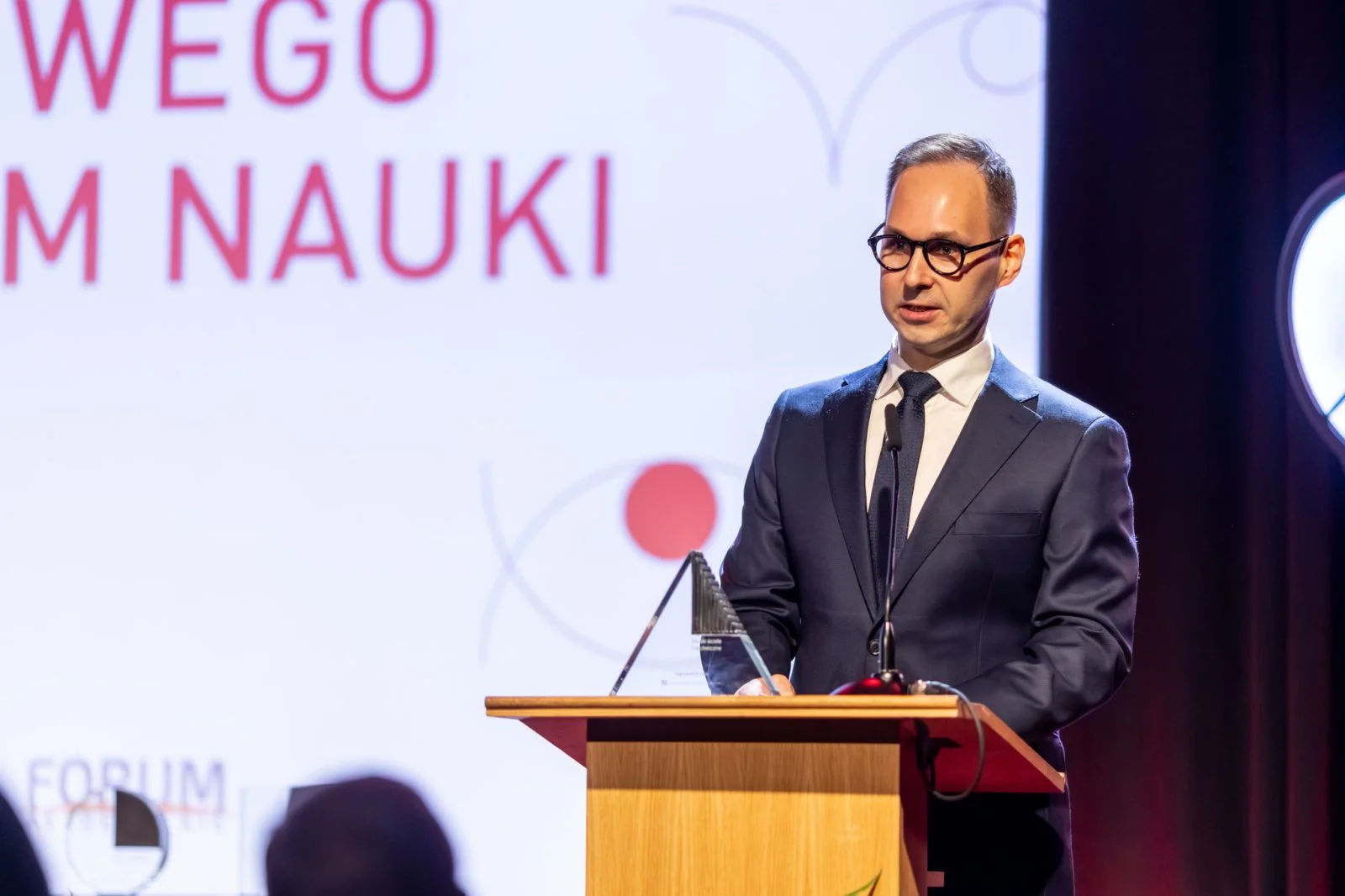
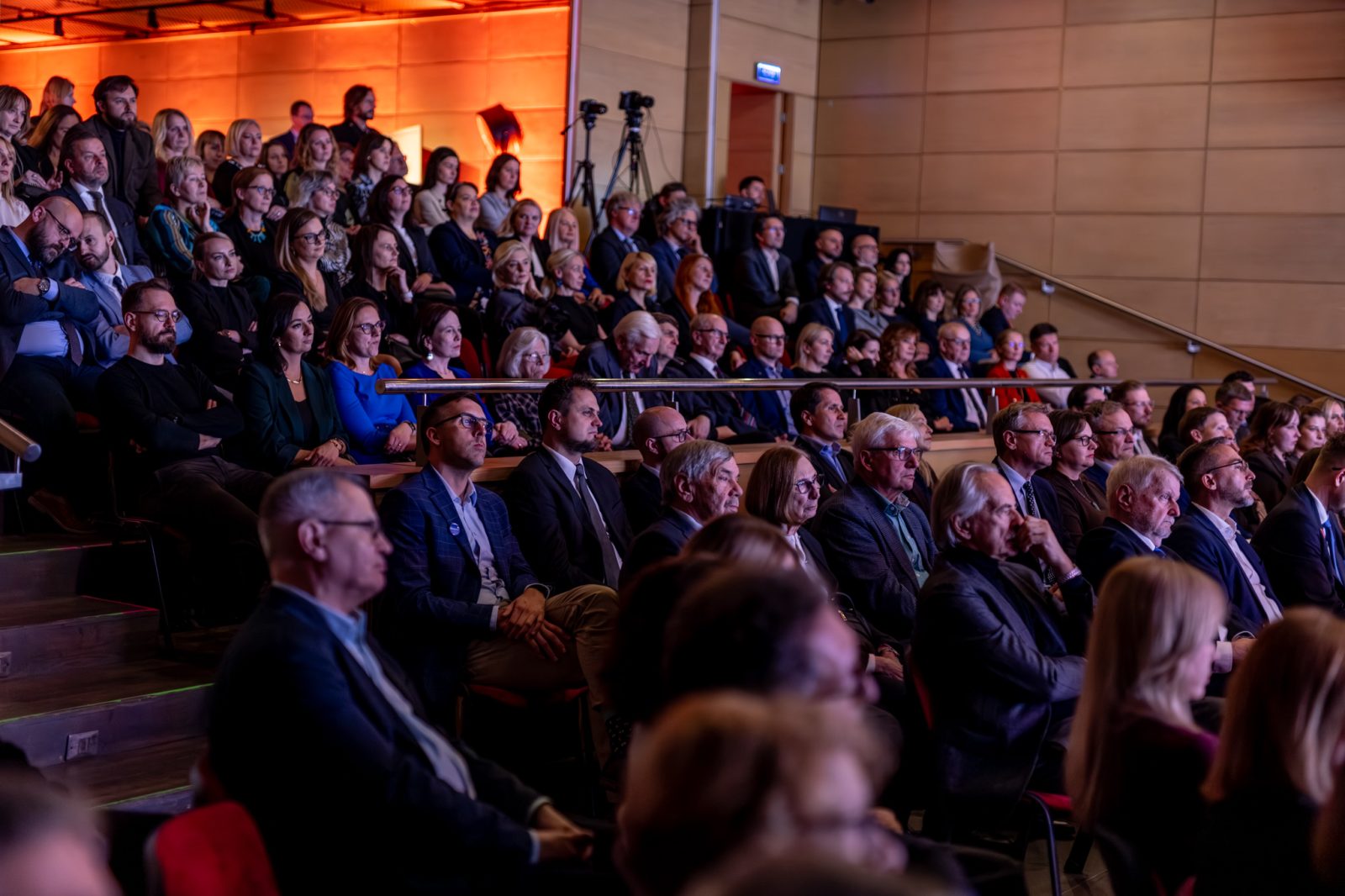
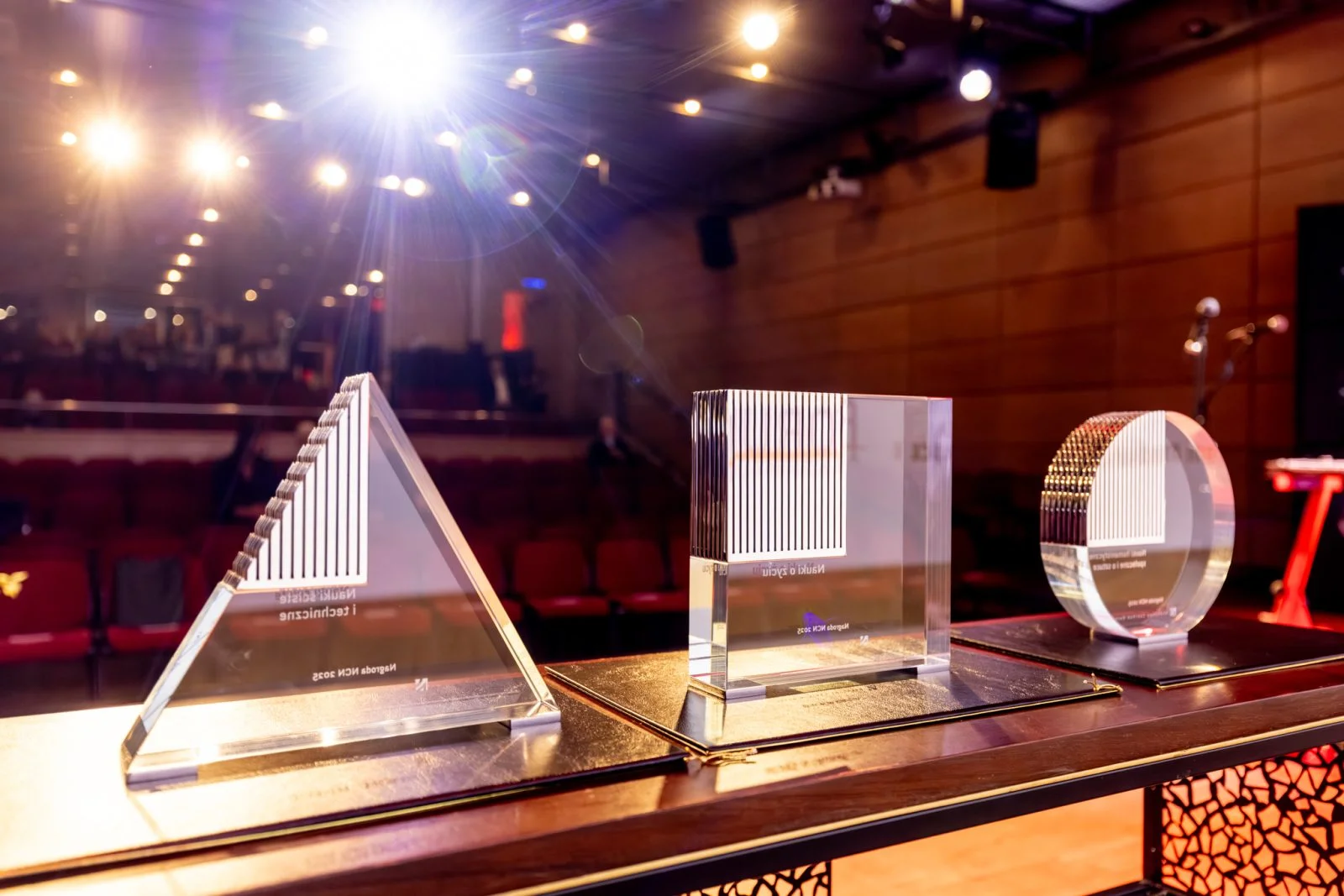
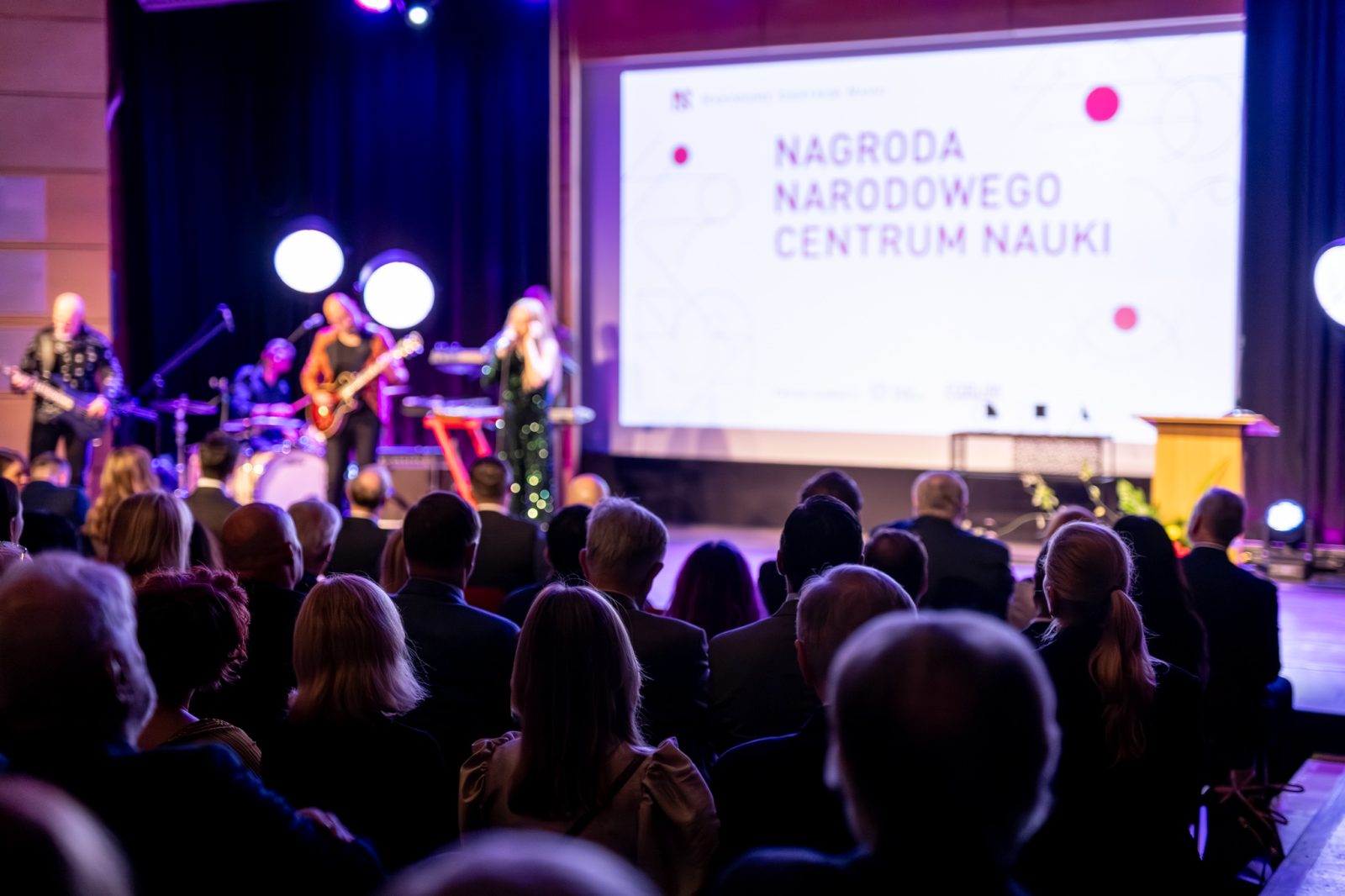
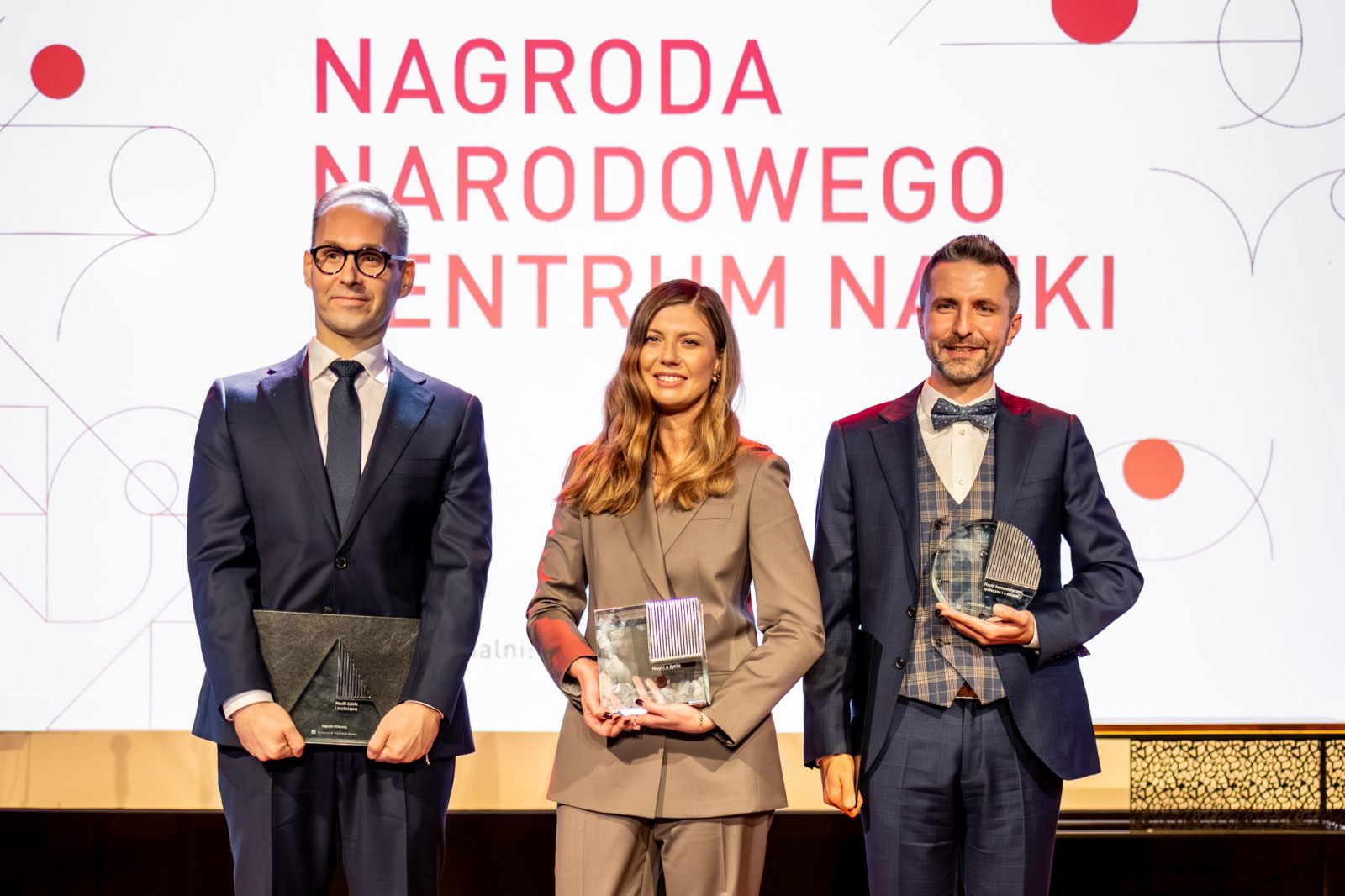

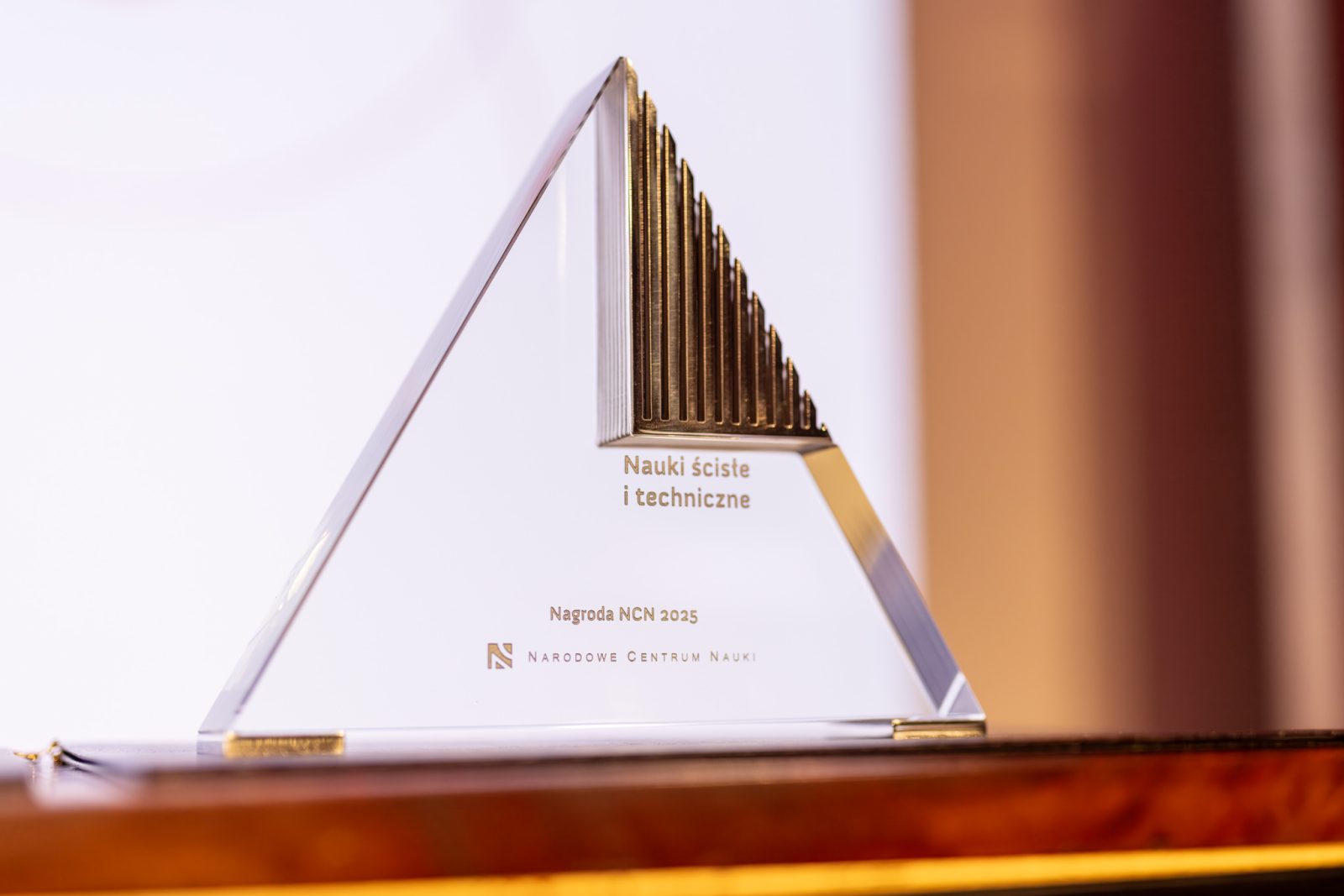
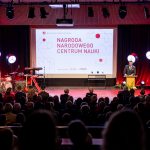
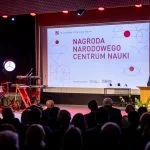
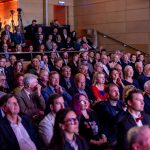
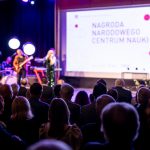
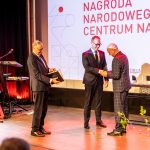
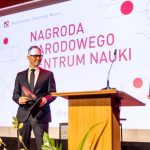
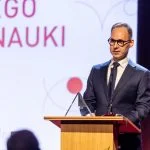
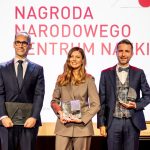
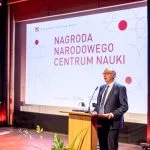
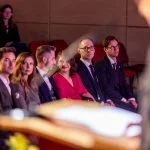
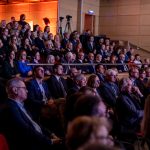

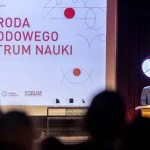

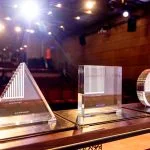
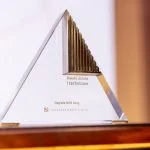
Date of publication: 15.10.2025
Added by: M.K.



